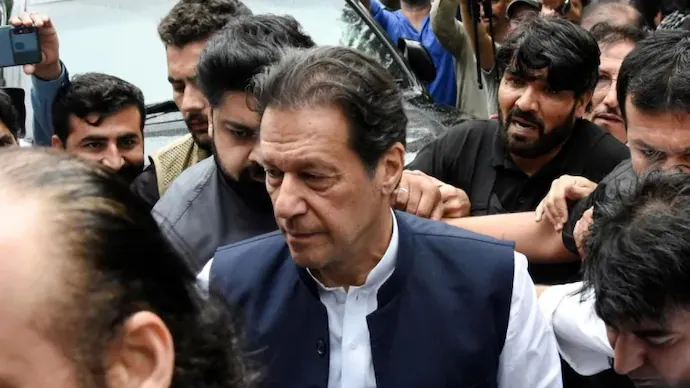Rama Krishna Sangem
Pakistan Supreme Court has asserted itself and granted two weeks bail to arrested Former Prime Minister Imran Khan in a corruption case on May 12, Friday. The court also directed the authorities not to slap any fresh cases on him at least till May 17. These orders are considered bold in a political atmosphere in the country which is witnessing direct interference from the army.
Former prime minister Imran Khan was granted a two-week bail by the Islamabad high court in the Al-Qadir Trust case on Friday, a day after the Supreme Court termed his arrest “invalid and unlawful”. Khan, 70, the chief of Pakistan Tehreek-e-Insaf, appeared before the same court from which he was dragged and arrested on May 10, Tuesday.
Khan, however, remained in the court after the decision as his lawyers petitioned the judges for similar protection in a number of other corruption charges, trying to close off a legal avenue for the government to arrest him again. Babar Awan, Khan’s chief lawyer, praised the ruling, and said Khan was now “a free man.”
Army yet to respond
The government contends that Khan’s release rewards and encourages mob violence. Even the army which has masterminded Khan’s arrest is yet to respond to the SC’s ruling. The cricketer turned politician who founded Pakistan e Tehrik (PTI) party in 1999 dismissed all charges against him and alleged that the army was trying to kill him.
The arrest triggered massive protests across the country in which his supporters attacked military installations, burned vehicles, and ambulances and looted general stores in various parts of the country. The government responded with a crackdown, arresting nearly 3,000 people.
The response of the army to the SC judgment will decide the next course of political developments in Pakistan. Whether Khan will be set free as per the SC order or is keenly watched by all. If he is released, whether he will be allowed to take part in parliament elections slated to be held later this year, is another question before the observers.



